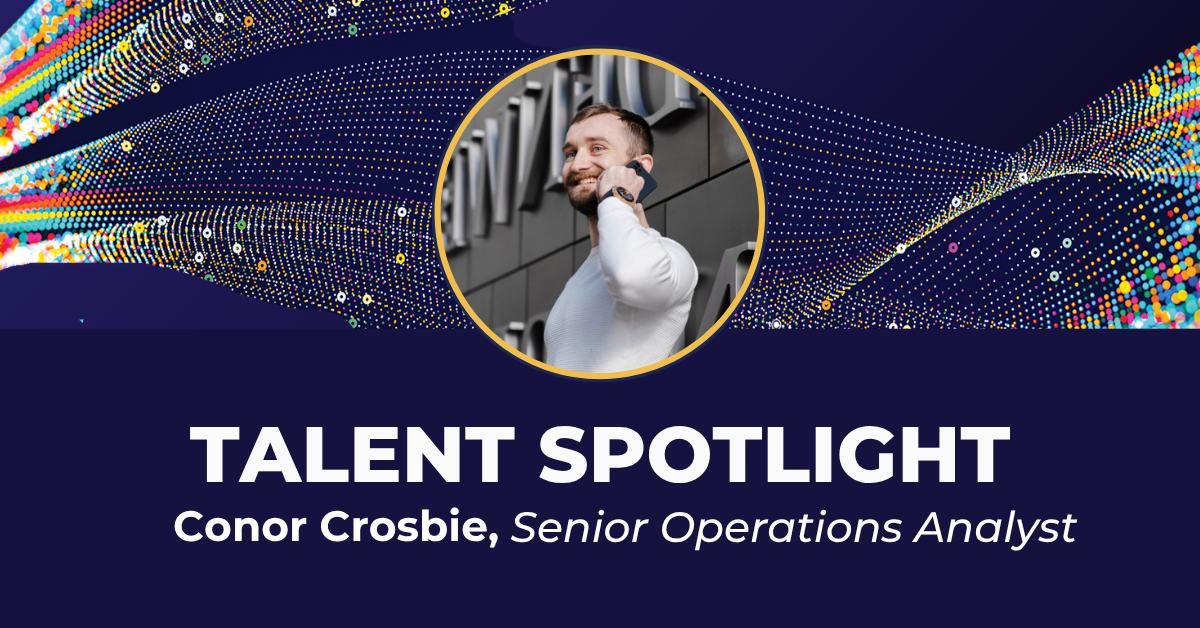Can you tell us more about your role at Siepe, how you found out about the Company, and your background?
As a senior operations analyst, my focus spans a range of key areas including day-to-day operational workflows, trade settlement on the European side, and the modeling of borrowing base deals for compliance teams. For example, the industry still handles compliance of borrowing bases manually. This often involves reviews of lengthy documents and Excel spreadsheets. At Siepe, we’re actively automating these processes and I’m currently working on ways to introduce more automation and efficiency to benefit our clients.
Before joining Siepe, I spent several years at Deutsche Bank and Vistra, where I worked closely with Phong Lam (Managing Director – EMEA, Siepe). My background combines both operational experience and a strong technical foundation, with programming skills in Python and JavaScript. Over the years, I’ve developed trading settlement platforms and explored ways to merge operational processes with technical solutions. Now at Siepe, I’m bringing that experience to help modernize our approach using technologies like large language models (LLMs) and generative AI tools.
What trends are you seeing in operational efficiencies within the credit and financial services industries, and how is Siepe adapting to them?
The biggest trend is the integration of automation platforms into traditional operations, especially through low-code tools that enable rapid deployment of workflow automations. But beyond that, the use of AI—particularly large language models like GPT and Gemini—is becoming central. Financial services are naturally data-heavy and math-driven, which makes them an ideal environment for AI to thrive.
Siepe’s focus on leveraging technology in financial services has allowed us to learn a lot from the traditional ways of operating and deploy modern tech stacks to upgrade fund manager systems. With leadership that comes from a technical background, including our CEO, Michael, there’s a strong push to integrate these new technologies with legacy operational methods.
With credit markets evolving and technology driving more automation, how do you see the role of operations analysts changing in the next few years?
We’re starting to see the role of operations analysts shift from executing traditional tasks to becoming agents of change. This will mean that the most effective analysts will be those who not only deliver on day-to-day responsibilities, but who also understand and adapt to emerging technologies. Grasping how new tools work and taking the lead on integrating them into workflows, will set them apart in what can be done to drive new efficiencies, instead of playing catch up when those tools are imposed from the outside.
Collaboration between operations, technology, and client services is essential in your role. How do you work across teams to ensure seamless execution of processes?
The key to working across teams is maintaining a good attitude and practicing empathy. It’s important to put yourself in the shoes of other departments and clients, understanding not only your own challenges but theirs as well. That perspective allows for better collaboration and ultimately leads to a higher level of service across the board.
If you could introduce one innovation or process improvement that would transform operational efficiency in the credit space, what would it be?
I believe the most transformative improvement is a deeper understanding of the challenges faced by teams both upstream and downstream from where you sit. When you view operations as an interconnected system instead of isolated tasks, you can identify efficiencies that benefit broader workflows, rather than just your immediate role.
Are there any exciting initiatives you’re working on that you can share?
Although I’m still settling into my role at Siepe, I’m already working on bringing AI tools into our operations. That includes exploring how large language models can help automate the reading and processing of complex documents. It’s early days, but I’m actively experimenting with how best to apply these tools for faster, smarter outcomes.
Can you share a fun fact?
Outside of work, I’m passionate about Brazilian Jiu Jitsu, which I practice four to five times a week. It’s something I can take with me wherever I go—whether I’m in Dublin or elsewhere, there’s always a local gym and a community that shares that interest.

